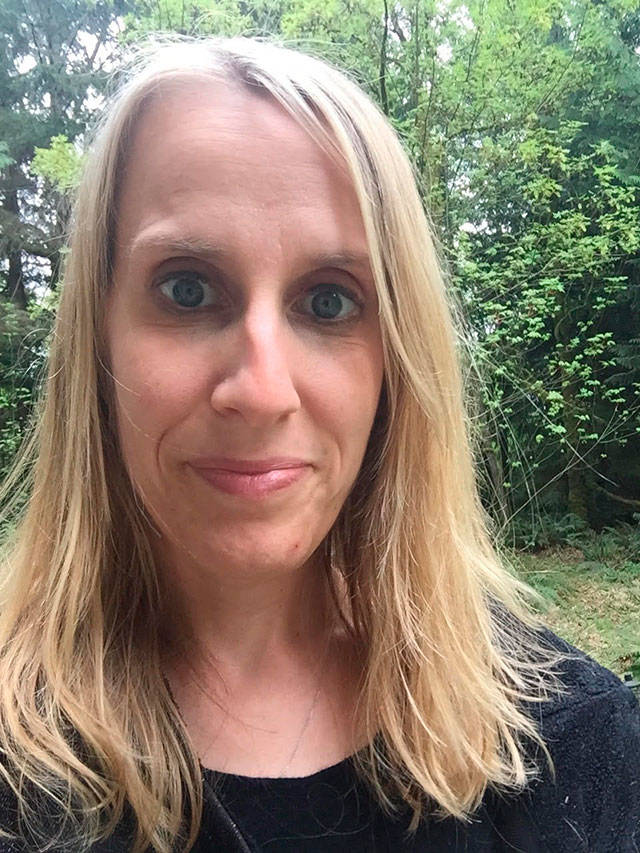This week at the University of Washington, 86-year-old cherry trees have become superstars. They have their own food trucks and paparazzi. Beautiful young college students dress up just to pose with them. Young families park their strollers and spend the afternoon under their soft pink glow. One afternoon this week, a harpist set up shop near the trees, lending an even more heavenly air to the scene.
In my excitement to get to the cherry trees this week, I realized that I had walked right across Alaskan Way in downtown Seattle without noticing whether the viaduct was still standing or not. It was fully possible, I realized, that the entire viaduct had been crushed into rubble, and that I hadn’t noticed.
Sure enough, on my return trip, I realized that I had indeed walked right past a large section of gnawed up rebar, several large crane trucks, and a gaping hole in the skyline that morning without batting an eyelash. I had been on my way to something beautiful. My eyes weren’t looking for destruction.
Sometimes our eyes can even be blind to beauty in the midst of the grit and grind of our everyday routines. Last month I got to see violinist Joshua Bell in concert. Bell told a story about how he stood for an entire day in a subway station in New York City, one of the most renowned violinists in the world, playing one of the most priceless violins in the world — and only a few of the many thousands of people who hurried through the station that day stopped to listen to him.
Isn’t it true that both beauty and destruction can come upon us when we least expect them? Shouldn’t we be equally prepared to meet them both at all times? Just how much are we missing in our lives?
The act of relentless, open noticing is not a trait that we’re born with. It’s a skill that we cultivate.
Such open noticing doesn’t just affect us, and our enjoyment of our lives, although I do think that life feels more vivid, more fully lived, when all of life’s aspects are more fully noticed.
But our lack of noticing affects others as well. Life moves fast. We bump into each other briefly and move on. We never know what we’ll miss about other people if we stay locked in our pre-set frames of mind.
Nancy Mairs writes in her essay “On Touching by Accident” about a time when, as a college professor, she was attempting suicide.
While she was taking pills to end her life, she heard a knock at her door. It was Halloween weekend, and a college student in a frilly pink clown costume requested to use her bathroom. She let the girl in, and she let the girl out. And then she kept on taking the pills. She quite forgot about the strange visitor in pink until weeks after her suicide attempt.
But upon remembering the girl in the clown costume, she wrote: “She entered my life so lightly, this child, needing only a place to empty her bladder so that she wouldn’t disgrace herself, at just the moment when I was planning to leave, though she couldn’t have known that. And I wonder whether I have done just the same thing myself, wandering through some other’s desolation in my costume-tight jeans, soft shirt, dusky velveteen blazer, cane — needing some quick favor on my way. How many times? And when?”
Here’s hoping we can make room for all the visitors who come into our lives — the cherry blossoms and the demolition crews; the virtuoso violinists and the regulars on the commute; the beautiful young college students and the professors who’ve given up hope. Here’s hoping we can make room for them all and hold them all with love, in whatever small ways that we can.
— Elizabeth Fitterer is an islander and member of the Puget Sound Zen Center.



